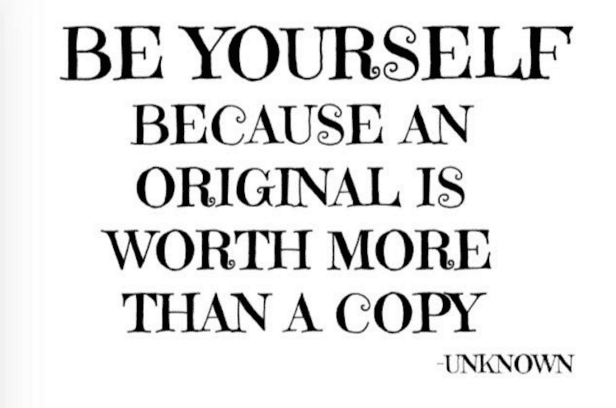If stigma didn’t exist, we would discuss mental illness more openly. I had a recent unpleasant experience on Twitter where someone posted a tweet that essentially said “Bipolar is not an illness. You simply have not trained yourself to control your thoughts and emotions,” and this person was very insistent that mental illnesses do not exist. This person had been responding to a post that a well known mental health advocate had posted about how he managed his bipolar disorder and how he was not ashamed of his illness.
I saw this appalling post and had to respond, and one of the responses that the offender wrote back was, “If you believe you have a mental illness, then you have a mental illness. It is all a matter of belief”. First of all, I should mention that this person (thankfully) does not have a large Twitter following and I will not name his or her Twitter handle because I refuse to give this person more attention or more fuel. Secondly, does this person really think that those of us who have been diagnosed with a mental illness just simply believe we have one, and that is how it works?
I wasn’t always this open about my mental illness. I began experiencing depression just before high school started, I had my first panic attack right before first year university ended, and have been taking medications for the better part of the last 10 years. I remember the first time I saw commercials on TV for Bell Let’s Talk and thinking this was a great campaign for raising awareness and encouraging a conversation about mental health using social media. We live in a society where we gather a lot of information from social media, so why not use it to our advantage?
Last year, I was contacted by someone at Healthy Minds Canada, who asked me to be a part of her team for Bell Let’s Talk, I said yes, and since then, I became increasingly active on Twitter and Facebook in terms of mental health advocacy. Because of Bell Let’s Talk Day 2015, I decided to become a volunteer blogger for Healthy Minds Canada, and I also reached out to International Bipolar Foundation to become a volunteer. I feel comfortable writing blog posts using my real name, no pseudonyms needed. I am comfortable with myself because of days like Bell Let’s Talk Day and because of World Bipolar Day (which is held on March 30th every year).
Why? Two reasons. The first, because I know I am not alone. We are not alone. When you read an article or blog post or memoir and you can relate to the writer and think “YES! I feel that way too!” or “Someone else feels the way I do too!”, don’t you feel less alone? Let’s make mental health awareness days about what we CAN do, not what we can’t. Forget about the naysayers who tell us to “get over it” and “it’s all in your head”.
The second, because I don’t like pretending. I spent so long pretending to be someone I wasn’t because I was afraid. I refuse to compromise my sense of self again. Always be true to yourself. If you take one thing away from this blog post, please take that message with you, because that is the nicest thing you can do for yourself, trust me.
On January 27, 2016, it is Bell Let’s Talk day in Canada. You don’t have to be Canadian to participate. You can use your Twitter accounts worldwide and Facebook to help raise awareness, send messages of hope and show people like that clearly ignorant person on Twitter why stigma is dangerous. We know stigma is one barrier that prevents people from seeking treatment.
Last year, as part of its campaign, Bell announced “5 Ways To Help End Stigma”:
- Language Matters
- Educate Yourself
- Be Kind
- Listen and Ask
- Talk About It
Will you be participating in the conversation on Bell Let’s Talk Day? If you don’t live in Canada, all you have to do on Twitter is use the hashtag, #BellLetsTalk and because International Bipolar Foundation is participating in the event, alongside Healthy Minds Canada, be sure to include @Healthy_Minds in every tweet you post, to make sure your tweet gets retweeted. You can also include International Bipolar Foundation’s Twitter Handle, @IntlBipolar and they will retweet your posts! It’s that easy. For every tweet and retweet with the hashtag, #BellLetsTalk, Bell will donate 5 cents to mental health initiatives. If you are on Facebook, follow the Bell Let’s Talk page and share their official images for that day, and they will donate 5 cents as well.
And if you want to keep the conversation going on Twitter after January 27, 2016, try using the hashtag, #LetsKeepTalking, and we can see how long we can keep the conversation going for. I know I will keep talking.


